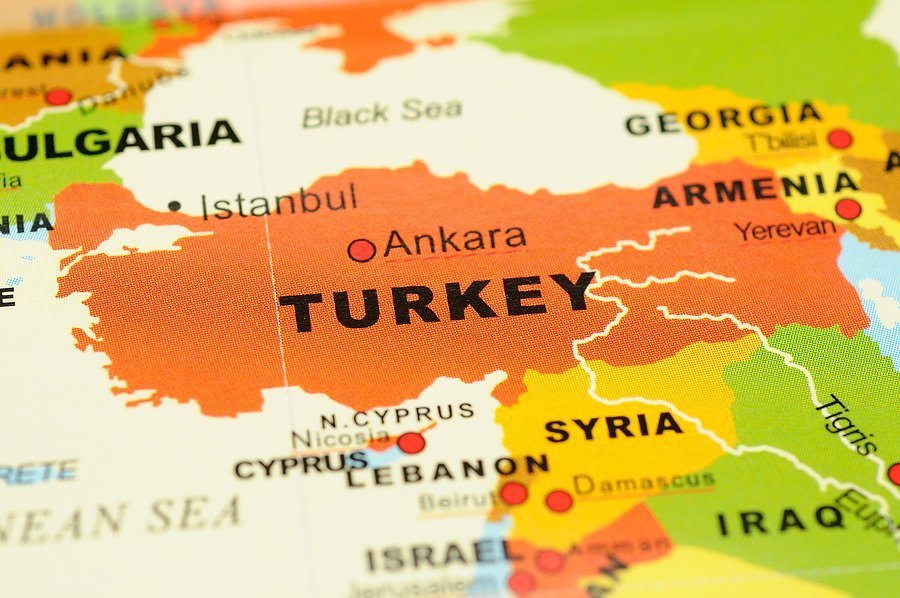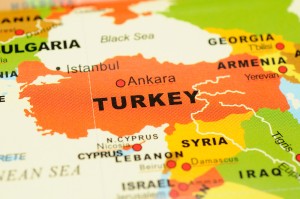2012-08-07 by Richard Weitz
Turkish analysts are well aware of Iran’s considerable influence in Iraq.
Tehran disposes of several important assets in the country, including (like Turkey) geographic proximity, a newly self-conscious and empowered Shiite majority that appreciates Iran’s centrality to the Shiite faith, and influential pro-Iranian factions embedded within Iraq’s government, military, and economy. Iran also enjoys clear military superiority over Iraq’s shattered armed forces.
Overlap of Interests
Nor are all Turkish and Iranian interests in Iraq necessarily in conflict. In late 2010, the Turkish Security Council reportedly removed Iran from its list of countries presenting a “major threat” to Turkish security.
Iraq and Iran each face major Kurdish terrorist groups based in Iraq. Besides the anti-Ankara PKK, the Free Life Party of Kurdistan (PJAK) attacks Iranian targets from its strongholds in the Iraq’s Qandil mountain range. Turkish and Iranian authorities therefore share an interest in limiting Kurdish autonomy in Iraq and suppressing the Kurdish terrorist groups based there.
The two governments have exchanged counterterrorist intelligence and coordinated military strikes against Kurdish terrorists in northern Iraq.
Energy and economic factors also incline Turkey to avoid a confrontation with Tehran over Iraq or other issues. Turkey currently imports about 18-25 million cubic meters of natural gas per day from Iran through a direct pipeline. This flow, which amounts to 10 billion cubic meters of gas per year, amounts to almost one-third of Turkey’s total annual gas consumption and helps balance Turkey’s energy dependence on Russia, which provides Turkey with most of its oil and gas and is building Turkey’s first nuclear power plant. On the strength of these economic ties, Turkey-Iran trade rose above $10 billion in 2011 and now exceeds $15 billion.
Even so, proposals to align with Iran in Iraq have generated little support among Turks.
Turkish Objectives
Most Turkish officials do not want Iran to dominate Iraq. They fear that Iranian leaders seek a weak and divided Iraq that is unable to contest Tehran’s drive for regional primacy. They also perceive Iran as wanting a subservient Shiite coalition to rule Baghdad that would not resist Iranian political and economic control over Iraq.
In contrast, Turkey favors a strong but democratic Iraqi state ruled by a coalition of political forces that can maintain domestic stability as well as contribute to regional security. These conditions would be favorable for reviving Iraq’s hydrocarbon production, which would benefit Turkey as a key transit state for Iraqi oil and gas, and restoring Iraqi economic growth, which would support Turkish investors and traders.
These different strategic visions have seen Turkish and Iranian groups often back opposing political forces in Iraq.
The renewed Turkish-Iranian rivalry over Iraq marks a regression to the historic pattern for the region.
With the exception of the past few decades when Iraq became an independent country with a strong central government, Mesopotamia had for centuries been an object of clashing imperial ambitions between the Turkish-centered Ottoman Empire and Safavid Persian dynasties.
More recently, relations between Turkey and Iran were strained during the 1990s. Turkish officials accused Iranians of seeking to promote religious fundamentalism in Turkey and other countries; Iranians criticized Turkey’s strict secular rules banning headscarves in public institutions. Turks opposed the Iranian practice of rule by clerics while Iranians criticized military rule in Turkey. Both governments suspected the other of promoting terrorist and separatist movements against them. It has only been in the last decade that Turkey, under AKP rule, has significantly improved its relations with the Iranian government.
The Syrian Factor
The recent differences between Turkey and Iran regarding Syria could reinforce this rivalry.
Although a few years ago the AKP was able to overcome decades of confrontation and develop good ties with the Syrian government, the regime’s brutal killing of thousands of protesters has led the AKP officials to support Syrian opposition forces seeking to change the current regime.
Iranian leaders have complained about the increasingly critical tone in Ankara regarding the Syrian government’s suppression of the popular uprising against it. Iranians consider preserving a friendly regime in Damascus a vital national interest for Iran. The Syrian government represents one of Iran’s few regional allies.
The Iranian and Syrian governments collude to support their proxy Islamist terrorist movements in Lebanon and Palestine.
Other Conflicting Perspectives
Iranian President Mahmoud Ahmadinejad has watched with some irritation as Erdogan’s popularity has soared above his own among the Arab masses and opposition movements. Erdogan has recommended that the new regimes in the Arab world follow Turkey’s secular democratic model, whereas Iranian government representatives have told them to establish an Islamic Republic, as in Iran.
Although Ahmadinejad initially appreciated the harder line that Erdogan’s AJP, which has ruled Turkey since 2002, adopted toward the Palestine question, he subsequently accused Turkey of colluding with Israel against Iran after Ankara announced in September 2011 that it would allow NATO to establish an early warning radar in southeast Turkey whose obvious, if unstated, purpose is to track Iranian missiles.
Turkey stuck to its guns and the radar is now supporting the Interim Capacity of NATO’s ballistic missile defense (BDM) system that NATO leaders declared at their May 20-21 heads-of-state summit in Chicago.
Ankara and Tehran might also revert to their earlier practice of supporting rival Kurdish terrorist groups against each other. PKK military leader Cemil Bayik, who has close ties to Iranian hardliners, has been one of the most vocal opponents of peace talks with the Turkish government. He recently pledged to defend Iran and Syria from alleged Turkish plots to change their regimes.
Earlier media reports claimed that Iranian authorities had briefly “detained” PKK leader Murat Karayilan when Iranian officials learned of impending Turkish air strikes against his PKK camps. The Iranians supposedly then released Karayilan when the bombing ended rather than remand him to Turkish custody. Turks speculated that Iranian authorities wanted to keep Karayilan and the PKK active as a potential source of leverage or a bargaining chip with Turkey.
The Iraq Dimension
Turkey should be able to wage an effective contest for influence with Iran in Iraq. Although Iran may dispose of more hard power assets in Iraq thanks to its Sadrist and other militant proxies, Turkey wields superior soft power resources thanks to the attractiveness of its moderate democratic traditions and its more prosperous and sophisticated economy.
From the perspective of Iraqis, Turkey provides a direct gateway to European markets. Turkey would further buttress its position in Iraq by solving its Kurdish problem and establishing an acceptable framework for managing the region’s water assets, removing what in previous years had been a source of tension between Turkey and the downstream countries of Iraq and Syria.
Turkey also has a wider range of potential partners to work with, both inside Iraq and in the Middle East region. Western and some Arab governments have generally encouraged Turkey to expand its presence in Iraq. Not only does Turkey help dilute Iranian influence, but Turkish business activities also generate economic growth and jobs in Iraq, helping the country recover from decades of war and civil strife.
Furthermore, many Western leaders still see Turkey’s Islamic-influenced but essential secular political system as a model of the type of political and social system that could work well in Iraq, which its large Sunni minority and secular tradition, or at least as offering a superior alternative to that of an Iranian-style Shiite autocracy. Even religious Turks such as AKP leaders espouse a moderate form of Sunni Islam that exudes tolerance toward Shiites and other Islamic minorities.
This Western support is likely to continue as Western influence in Iraq declines further in coming years with the withdrawal of U.S. troops and the natural deeper integration of Iraq into mainstream Middle East politics.
Of course, by helping keep Iraq out of Tehran’s orbit and linking Baghdad to the West, Ankara increases its own regional influence and enhances its value as a strategic partner of Western and Persian Gulf governments.
The United States and other pro-Western governments would welcome Turkey’s keeping Iranian influence within limited bounds in Iraq, but Washington would also be wise to keep any support to Ankara low key.
Turkey can best advance Western (and Iraqi) interests if it is not seen as a U.S. proxy or a Sunni Muslim patron seeking to marginalize Iraq’s long repressed Shiite majority.
Otherwise, Turkey could find itself leading a block of West-leaning Sunni states against Iran and its Shiite-dominated proxies.
Such an Islamic cold war would still promote further divisions among Middle Eastern Muslims as their governments gravitate toward one pole or the other.



